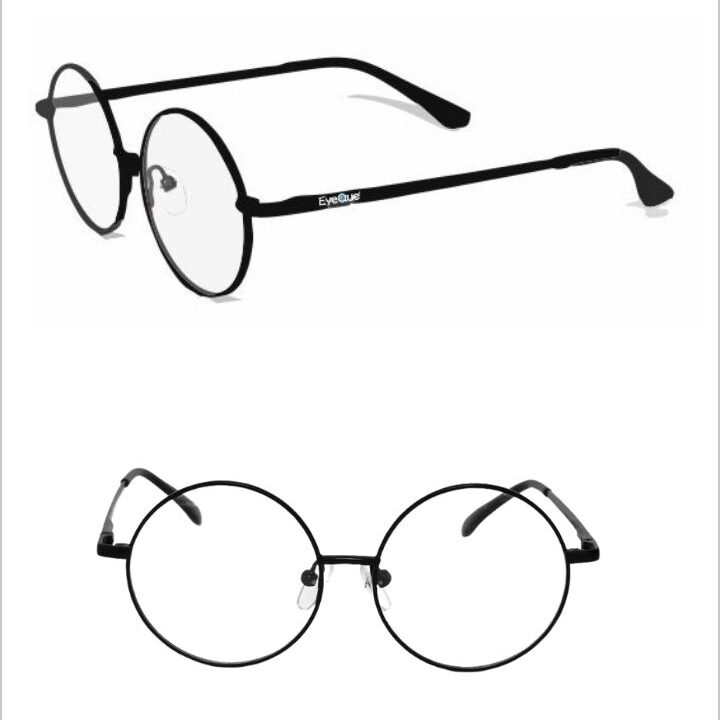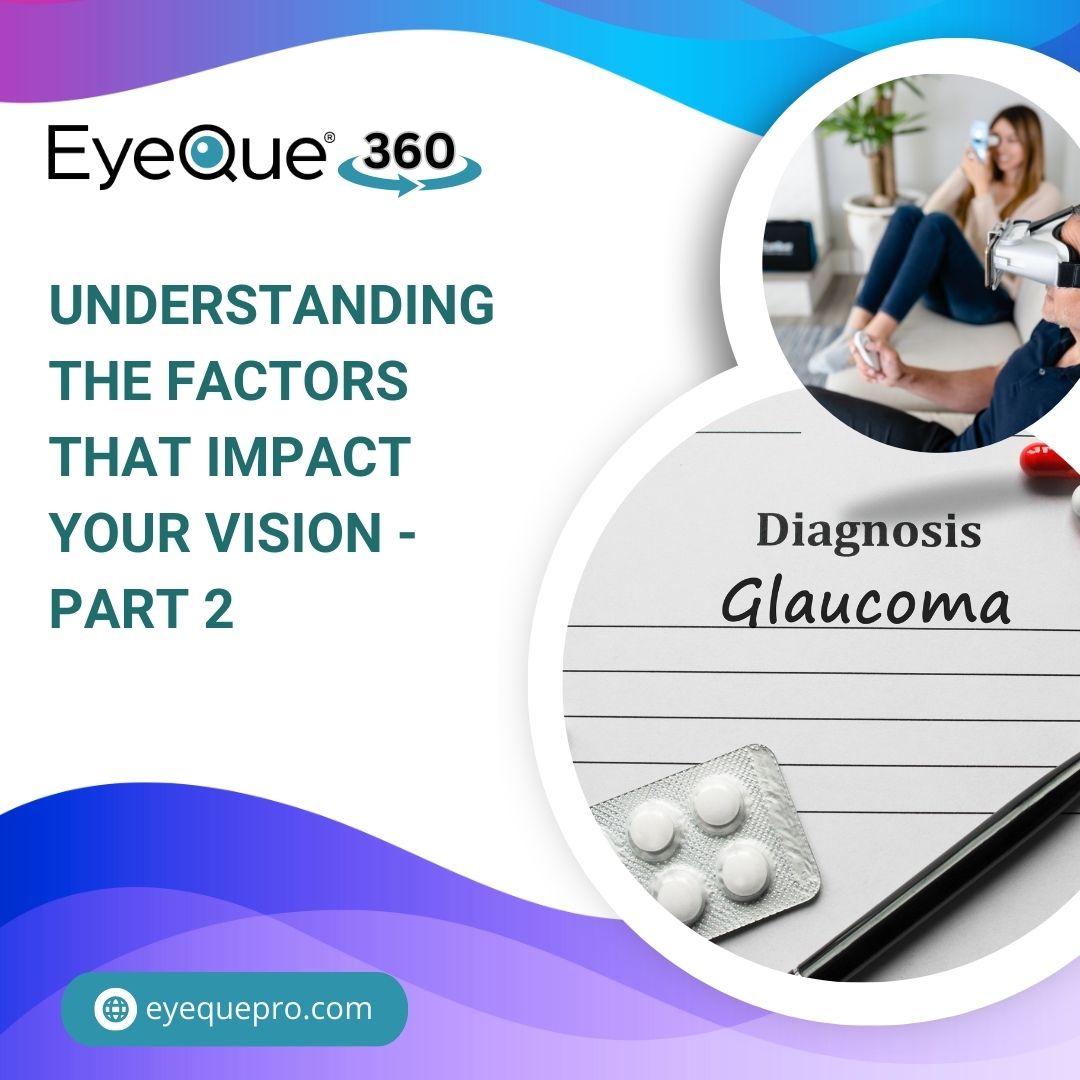EyeQue360- Understanding the factors that impact your vision. – Part2
– by EyeQue360 Team
Various eye diseases can significantly impact vision, affecting individuals in distinct ways. Refractive errors such as myopia (nearsightedness), hyperopia (farsightedness), and astigmatism result in blurred vision due to irregularities in the eye’s shape, hindering the ability to focus clearly on objects at various distances. Pre and post-refractive surgeries aim to correct these errors, restoring visual acuity. Presbyopia, commonly associated with aging, leads to difficulty focusing on close objects due to the natural hardening of the eye’s lens. Cataracts cause clouding of the eye’s lens, resulting in blurry or dim vision that can ultimately lead to blindness if left untreated. Glaucoma damages the optic nerve, leading to peripheral vision loss and, if untreated, irreversible blindness. Macular degeneration affects central vision, impairing the ability to see fine details and causing distorted or blurry vision. Diabetic retinopathy, a complication of diabetes, damages blood vessels in the retina, leading to vision loss.
Retinal detachment occurs when the retina peels away from its underlying tissue, causing sudden flashes of light, floaters, or partial vision loss. Dry eye disease results in discomfort and vision disturbances due to insufficient tear production. Inflammation and infections of the eye can lead to redness, pain, and vision impairment if left untreated. Amblyopia, commonly known as lazy eye, results in reduced vision in one eye due to abnormal visual development during childhood. Color vision deficiency affects the ability to perceive certain colors accurately, impacting tasks such as reading charts and identifying objects. Retinitis pigmentosa is a genetic disorder causing gradual vision loss due to degeneration of the retina’s light-sensitive cells. Keratoconus and other corneal diseases lead to distorted vision and may require specialized treatments such as corneal transplantation to restore visual clarity. Each of these conditions underscores the importance of regular eye examinations and timely intervention to preserve and optimize vision health.








